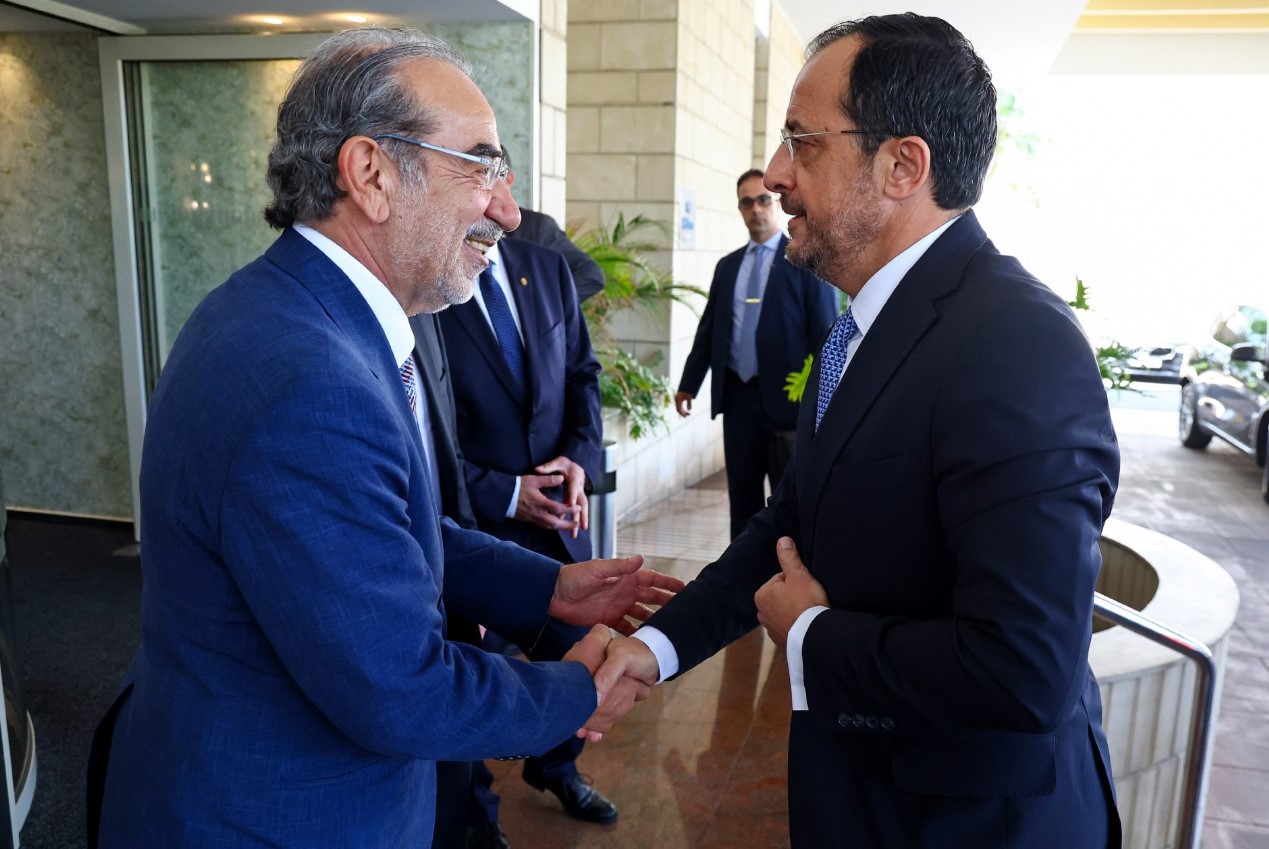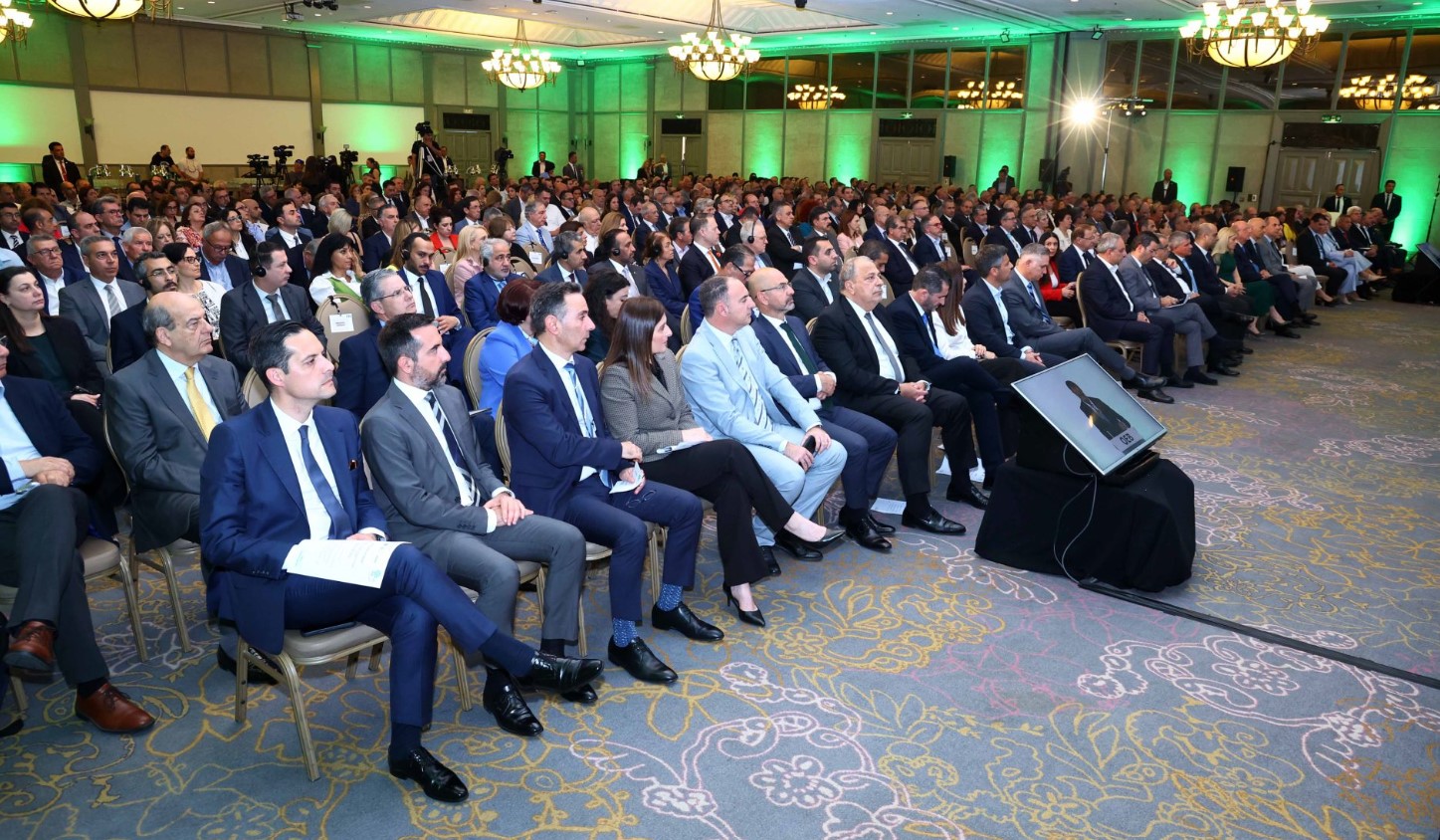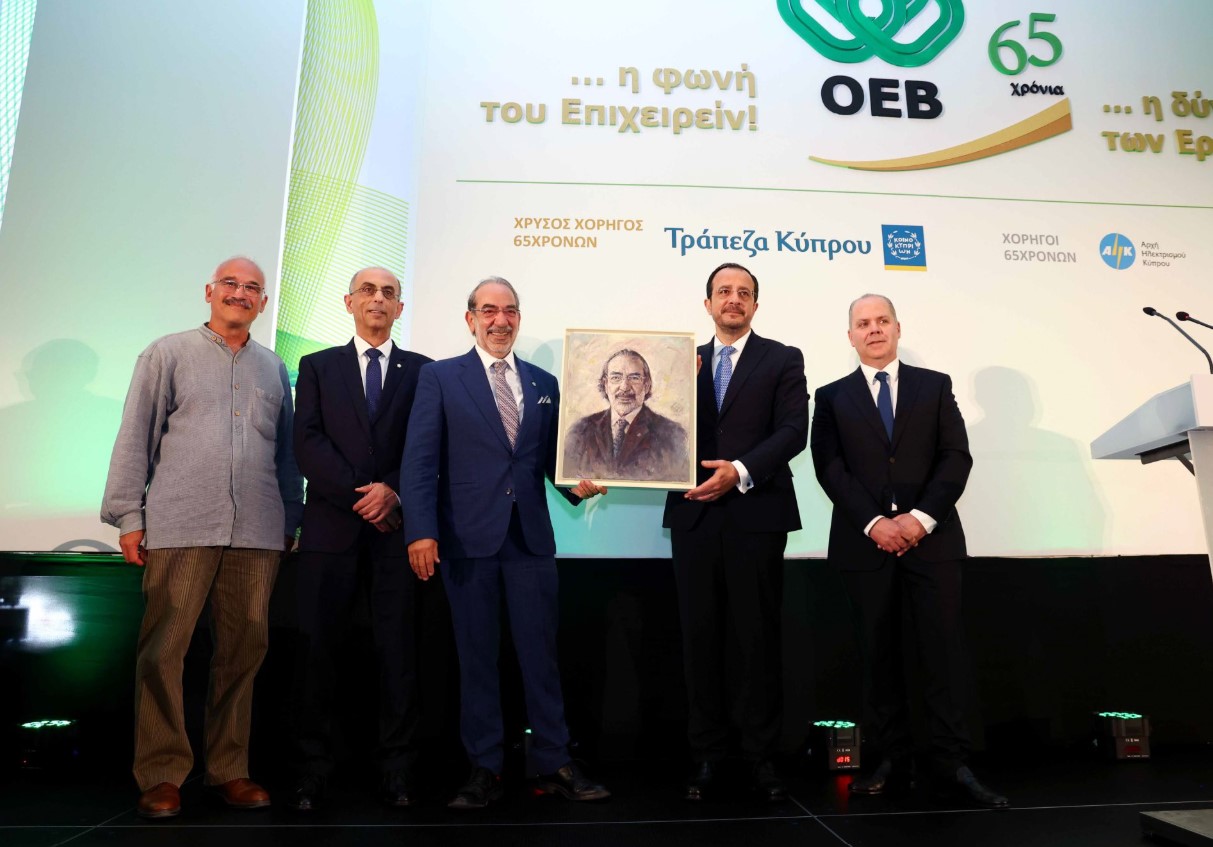George Pantelides took over as president of the Employers and Industrialists Federation (Oev) on Wednesday, replacing the outgoing Antonis Antoniou, during the organisation’s annual general assembly held in Nicosia.
Pantelides was elected unanimously by the board and used his first address to set out a bold strategic goal, which is to upgrade Cyprus’ credit rating to AAA.
He said this goal could only be achieved through targeted investment in three pillars. These are people, value and competitiveness.
The incoming president emphasised that these three areas must guide reforms and policy in the coming years, while also highlighting the importance of accelerating the digital transformation in both the public and private sectors.
He also called for the creation of a national business support plan, arguing that current provisions were insufficient for upgrading Cyprus’ productive infrastructure and business environment at the necessary pace.
Pantelides set as further priorities the development of a modern labour framework, stability in the tax system, support for technical education, and improving the effectiveness of the national health system.
He also proposed structural reforms to labour market institutions to ensure equal access for employers and attractive conditions for workers.
“International credibility is the foundation of sustainable development,” he said, adding that when credibility is damaged, deficits and crises soon follow.
Pantelides stated that political, economic and fiscal stability were essential for attracting quality investments and ensuring long-term growth.
He described the global economic situation as “the most fluid in the last 100 years,” citing commercial tensions and the threat of recession, but maintained that Cyprus could remain resilient through collective effort.

Pantelides also confirmed Oev’s full support for Cyprus’ upcoming presidency of the Council of the European Union in 2026, noting the importance of promoting European competitiveness and regulatory simplification during the country’s tenure.
The handover was described as emotional by many attendees, with Pantelides expressing deep gratitude to the board for their trust and thanking Antoniou for his leadership over the past four and a half years.
Antoniou, in his final address as Oev president, said he was proud of the federation’s achievements, particularly its role in reinforcing the economy’s credibility and managing major challenges.
He pointed to the economy’s resilience, noting Cyprus is entering 2025 with a growth rate of 2.7 per cent, inflation around 2 per cent, and historically high employment levels.
However, he warned of serious concerns including the trade deficit, high energy costs, a lack of labour, and excessive regulation, especially in the labour and industrial sectors.
Antoniou called for restraint in public spending, full implementation of the 2014 agreement with PASYDY, and mechanisms to link state expenditure with economic capacity.
He praised the country’s positive fiscal performance, citing a surplus of 2.5 per cent of GDP and falling public debt, but also warned of the impact of US President Donald Trump’s policies on international trade.
What is more, the outgoing president endorsed raising corporate tax to 15 per cent as a way to boost international credibility and underlined the importance of meeting the reform’s implementation deadline of 1 January 2026.
He advocated for reform in the civil service, greater support for technical education, and faster judicial processes.
He also requested formal Oev participation in the joint staff committee and equal representation of employers and workers in all social dialogue bodies.

In terms of the labour market, he highlighted acute shortages in sectors such as nursing and transport, and backed flexible recruitment from third countries.
Moreover, he criticised over-regulation as a drag on competitiveness and called for a temporary freeze on new labour legislation and a strict review of social policies for financial sustainability.
On health, he said the national health system (GeSY) required stricter supervision and long-term viability, reiterating Oev’s opposition to legislation that would separate private and public hospitals.
Additionally, he supported hiring nurses from third countries to immediately address staff shortages.
In the energy sector, Antoniou said Cyprus’ current climate goals were unachievable under existing conditions.
The outgoing Oev president called for revisions to green tax policy, investments in energy storage, and upgrades to the national power grid.
Meanwhile, both Pantelides and Antoniou stressed the importance of strengthening small and medium-sized enterprises and the need for modern education aligned with the economy’s demands.
Pantelides also reaffirmed his commitment to supporting Cyprus’ EU presidency and boosting the country’s standing as a reliable European partner.
He said the entrepreneurial community remains “the most creative cell of the economy,” and that he was confident in its collective strength.






Click here to change your cookie preferences